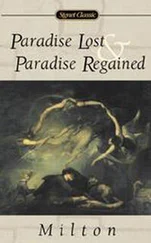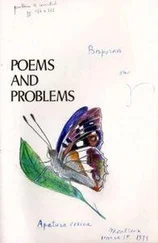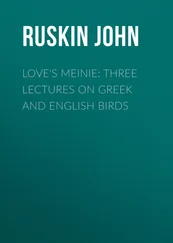Yes, dreary as we own our Northern clime,
E'en we to Phoebus raise the polish'd rhyme,
We too serve Phoebus; Phoebus has receiv'd,
(If legends old may claim to be believ'd)
No sordid gifts from us, the golden ear,
The burnish'd apple, ruddiest of the year,
The fragrant crocus, and, to grace his fane,
Fair damsels chosen from the Druid train–
Druids, our native bards in ancient time,
Who Gods and Heroes prais'd in hallow'd rhyme.
Hence, often as the maids of Greece surround
Apollo's shrine with hymns of festive sound,
They name the virgins who arriv'd of yore
With British off'rings on the Delian shore,
Loxo, from Giant Corineus sprung,
Upis, on whose blest lips the Future hung,
And Hecaerge [145] The maidens who brought offerings to Delos. Loxo, descended from the ancient British hero, Corineus; Upis, a prophetess; and Hecaerge.
with the golden hair,
All deck'd with Pic'ish hues, and all with bosoms bare.
Thou therefore, happy Sage, whatever clime
Shall ring with Tasso's praise in after–time,
Or with Marini's, shalt be known their friend,
And with an equal flight to fame ascend.
The world shall hear how Phoebus and the Nine
Were inmates, once, and willing guests of thine.
Yet Phoebus, when of old constrain'd to roam
The earth, an exile from his heav'nly home,
Enter'd, no willing guest, Admetus' [146] Admetus was King of Thessaly. Apollo was for a year his shepherd.
door,
Though Hercules had enter'd there before.
But gentle Chiron's [147] See Homer (Il. xi, 830–831) and Ovid (Met. ii, 630).
cave was near, a scene
Of rural peace, clothed with perpetual green,
And thither, oft as respite he requir'd
From rustic clamours loud, the God retir'd.
There, many a time, on Peneus' bank reclin'd
At some oak's root, with ivy thick entwin'd,
Won by his hospitable friend's desire
He sooth'd his pains of exile with the lyre.
Then shook the hills, then trembled Peneus' shore,
Nor Oeta [148] Mt. Oeta, between Thessaly and Aetolia.
felt his load of forests more,
The upland elms descended to the plain, [149] See Ovid (Met. x, 87–106), where the trees crowd the hear Orpheus sing.
And soften'd lynxes wonder'd at the strain.
Well may we think, O dear to all above!
Thy birth distinguish'd by the smile of Jove,
And that Apollo shed his kindliest pow'r,
And Maia's son, [150] Hermes.
on that propitious hour,
Since only minds so born can comprehend
A poet's worth, or yield that worth a friend.
Hence, on thy yet unfaded cheek appears
The ling'ring freshness of thy greener years,
Hence, in thy front, and features, we admire
Nature unwither'd, and a mind entire.
Oh might so true a friend to me belong,
So skill'd to grace the votaries of song,
Should I recall hereafter into rhyme
The kings, and heroes of my native clime,
Arthur the chief, who even now prepares,
In subterraneous being, future wars,
With all his martial Knights, to be restor'd
Each to his seat around the fed'ral board,
And Oh, if spirit fail me not, disperse
Our Saxon plund'rers in triumphant verse!
Then, after all, when, with the Past content,
A life I finish, not in silence spent,
Should he, kind mourner, o'er my deathbed bend
I shall but need to say—"Be yet my friend!"
He, faithful to my dust, with kind concern
Shall place it gently in a modest urn;
He too, perhaps, shall bid the marble breathe
To honour me, and with the graceful wreath [151] The wreaths of victors, made from the laurel, which grew on Mt. Parnassus, sacred to the Muses, and the myrtle, sacred to Venus, a shrine to whom was at Paphos in Cyprus.
Or of Parnassus or the Paphian isle
Shall bind my brows—but I shall rest the while.
Then also, if the fruits of Faith endure,
And Virtue's promis'd recompense be sure,
Borne to those seats, to which the blest aspire
By purity of soul, and virtuous fire,
These rites, as Fate permits, I shall survey
With eyes illumin'd by celestial day,
And, ev'ry cloud from my pure spirit driv'n,
Joy in the bright beatitude of Heav'n!
XIII
The Death of Damon - The Argument
Thyrsis and Damon, shepherds and neighbours, had always pursued the same studies, and had, from their earliest days, been united in the closest friendship. Thyrsis, while traveling for improve– ment, received intelligence of the death of Damon, and, after a time, returning and finding it true, deplores himself and his solitary condition, in this poem.
By Damon is to be understood Charles Diodati, connected with the Italian city of Lucca by his Father's side, in other respects an Englishman; a youth of uncommon genius, erudition, and virtue.
Ye Nymphs of Himera [152] A river in Sicily.
(for ye have shed
Erewhile for Daphnis [153] Subject of Theocritus's Lament for Daphnis (Idyl i) in which Thyrsis is the mourning shepherd. Hylas was taken away by nymphs who admired his beauty and Bion is the subject of Moschus's Epitaph of Bion (Idyl iii).
and for Hylas dead,
And over Bion's long–lamented bier,
The fruitless meed of many a sacred tear)
Now, through the villas laved by Thames rehearse
The woes of Thyrsis in Sicilian verse,
What sighs he heav'd, and how with groans profound
He made the woods and hollow rocks resound
Young Damon dead; nor even ceased to pour
His lonely sorrows at the midnight hour.
The green wheat twice had nodded in the ear,
And golden harvest twice enrich'd the year,
Since Damon's lips had gasp'd for vital air
The last, last time, nor Thyrsis yet was there;
For he, enamour'd of the Muse, remain'd
In Tuscan Fiorenza long detain'd,
But, stored at length with all he wish'd to learn,
For his flock's sake now hasted to return,
And when the shepherd had resumed his seat
At the elm's root within his old retreat,
Then 'twas his lot, then, all his loss to know,
And, from his burthen'd heart, he vented thus his woe.
Go, seek your home, my lambs; my thoughts are due
To other cares than those of feeding you.
Alas! what Deities shall I suppose
In heav'n or earth concern'd for human woes,
Since, Oh my Damon! their severe decree
So soon condemns me to regret of Thee!
Depart'st thou thus, thy virtues unrepaid
With fame and honour, like a vulgar shade?
Let him forbid it, whose bright rod controls,
And sep'rates sordid from illustrious souls,
Drive far the rabble, and to Thee assign
A happier lot with spirits worthy thine!
Go, seek your home, my lambs; my thoughts are due
To other cares than those of feeding you.
Whate'er befall, unless by cruel chance
The wolf first give me a forbidding glance,
Thou shalt not moulder undeplor'd, but long
Thy praise shall dwell on ev'ry shepherd's tongue;
To Daphnis first they shall delight to pay,
And, after Him, to thee the votive lay,
While Pales [154] Goddess who was protector of the flocks. Faunus is god of the plains and hills around Rome.
shall the flocks and pastures love,
Or Faunus to frequent the field or grove,
Читать дальше












